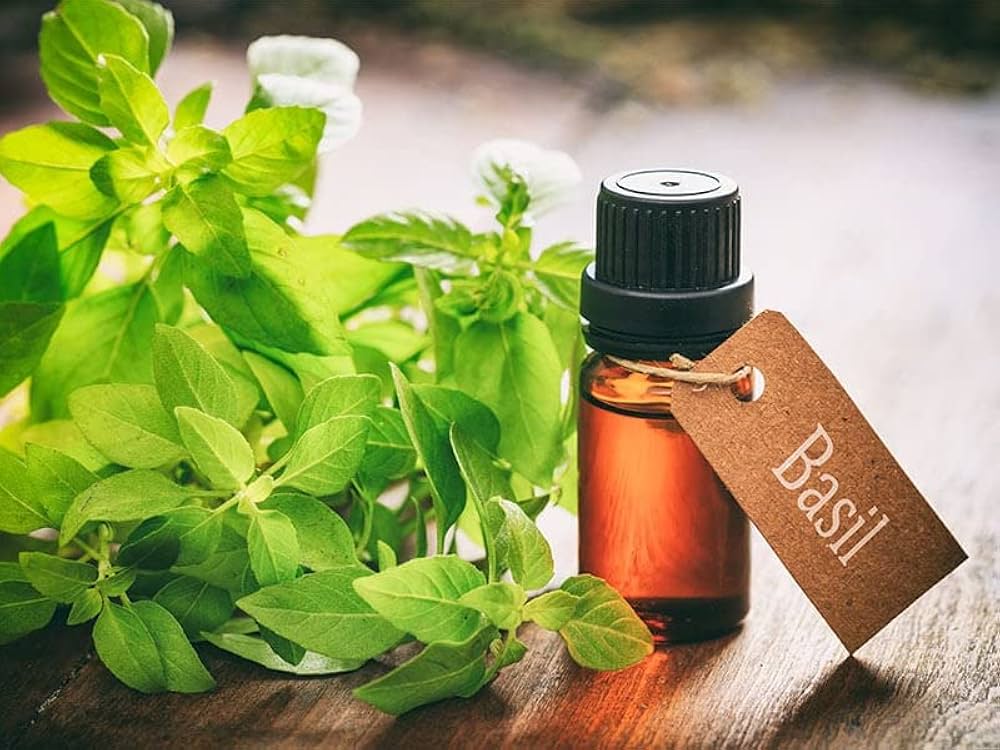
Ocimum. basilicum L. commonly known as Sweet basil belongs to Lamiaceae family. The genus Ocimum comprises more than 150 species and is considered as one of the largest genera of the Lamiaceae family. Basil is well-known for its folk medicinal value of The leaves and flowers of basil are used in folk medicine as a tonic and vermifuge, and basil tea is good for treating dysentery, nausea and flatulence. The oil of the plant is beneficial for the alleviation of spasm, rhinitis mental fatigue, cold, and as a first aid treatment for wasp stings and snakebites.
Basil has long been used as an embalming and preserving herb, found in mummies of ancient Egypt. Basil was used also a symbol of mourning in Greece where it was known as basilikon photon, meaning magnificent, royal, or kingly herb. Ancient records from 907 A D indicate sweet basil in the Hunan region of China. Many beliefs and rituals are accompanied with basil. In Italy it is a symbol of love, in France it is named as an herb of royalty. Jewish people used it to get strength during fasting while an African legend claims that basil protects against scorpions. Sweet basil (Ocimum basilicum L.), a common garden herb, is cultivated in the United States for culinary purposes as a fresh herb and as a dried spice. While there are many cultivars, little information is available on the essential oil compounds responsible for the plant’s flavor and fragrance.
researched indicate that Basil essential oil have antioxidant, antibacterial and antifungal activity and can be used as natural antioxidant and antimicrobial agents in medicine, dental and oral products, in fragrances food industry and cosmetics.
steam distillation
the Basil essential oils distilled can contain alcohols (linalool), oxides (1,8-cineole), phenols (eugenol, methyl eugenol, methyl isoeugenol, thymol), esters (methyl cinnamate), aldehydes (citral), and camphor. The 1,8-cineole, methyl cinnamate, methyl chavicol, and linalool are constituents responsible for the distinct aroma of basil plants.